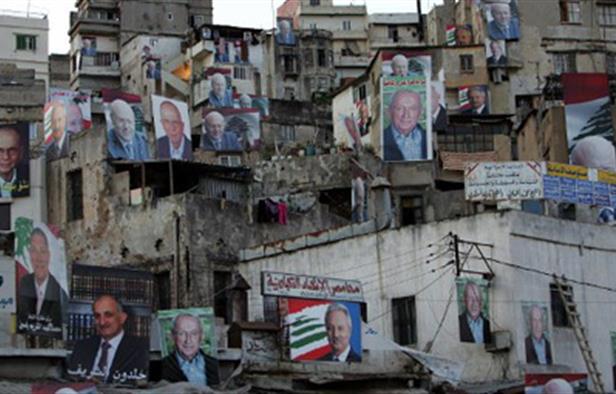
(Reuters) – So many bullet holes cover the apartment blocks and shops in the Bab al-Tabbeneh district of northern Lebanon’s main city Tripoli that you can hardly tell which conflict they are from any more.
"The area is dying," Sheikh Omar al-Rifai, a local Sunni Muslim cleric, shouted over the roar of hammers repairing damaged storefronts and men dragging debris from gutted homes.Last month gunmen including supporters of the hardline Islamic State group fought the Lebanese army here for three days, a battle that killed several soldiers and damaged some of the largely Sunni port city’s most famous historic sites.
To outsiders, it may have seemed like a natural consequence of the dramatic rise of hardline Sunni groups from Iraq to Algeria. But for residents the conflict was rooted more in poverty, joblessness and frustrations over years of what they see as political marginalisation and economic mismanagement.
Poverty is palpable in Bab al-Tabbeneh, where run-down buildings make a contrast to newer ones several kilometres away. Men here clear gutters by hand. Plastic bags, snack food wrappers and fruit peels are ground into the muck of the road.
"Taking up arms doesn’t happen unless there’s unemployment," Rifai said, speaking within earshot of an armoured personnel carrier and army patrol. "If a man is jobless, if he can’t work, what does he have?"
The battle in Tripoli was the second of its kind between Syria-linked fighters and Lebanese soldiers this year.
Many Sunnis resent the Shi’ite movement Hezbollah, which has sent fighters to aid Syrian President Bashar al-Assad, a member of the Shi’ite-derived Alawite sect, against Sunni rebels. Increasingly, hardliners have turned their anger against the army, which they accuse of working with Hezbollah.
Whatever its cause, the fighting illustrates a dangerous trend for the Mediterranean state – for one of the first times since Syria’s war began, Sunni gunmen here turned their weapons on soldiers rather than Alawite rivals living on the other side of a thoroughfare appropriately named Syria Street.
A RECIPE AGAINST TERRORISM
Misbah Ahdab, a former lawmaker, has a large flat in a good part of town, but his list of grievances is long. The city’s residents were being used as pawns in political games, he said. The economy was falling apart, young men were being imprisoned on thin pretexts, and Sunni leaders were failing to stop it.
Impoverished Sunni areas in the north which provide the army with many of its recruits were now being portrayed as hotbeds of terrorism, Ahdab said. Hezbollah was meanwhile parading its fighters and weapons on television and fighting openly in Syria.
Young Sunni men who might have worked in factories or hotels were now carrying weapons, he said. Recent donations to the Lebanese army to help it fight militants would only do so much.
"We’re talking about bringing money to the Lebanese army to fight terrorism. Wonderful. But do we fight terrorism only with rockets?" Ahdab said. "There’s a recipe against terrorism. If people are starving, they will be in alliance with the devil."
What the city needed was a way to reintegrate young men who, he said, were victims of years of mismanagement and failed politics. It needed real development, not crackdowns. But none of this was happening, and few leaders capable of making real change were emerging. "It’s as though the Sunni community is sterile, not able to produce new faces," Ahdab said.
"THEIR VOICES ARE LOUD"
Despite the frustration in Tripoli, relatively few Lebanese seem to actively support hardline groups such as Islamic State so far. Residents say scores, not hundreds, of young men took part in the latest clashes.
"Their numbers are not large but their voices are loud and they make a din when they move," said Sheikh Nabil Rahim, another Tripoli cleric.
Still, every resident interviewed by Reuters on a recent visit agreed there was a strong risk fighting could get worse and the appeal of such groups would grow if basic grievances were not addressed – even if they were at a loss for clear solutions and divided in their views of the army’s role.
Seated in a shop by a bullet-scarred wall, two men argued the point on a recent morning. The first said the army had been too heavy handed and would only breed more resentment. "We’re in a residential area, and when the army comes and shells, they don’t know what they’re hitting," he said.
The second disagreed. He said he supported the military action. Those they hit were merely "thugs and drug addicts".
The first persisted: "Was your shop hit by bullets or not?" he said.
"Fine," the second said. "But what’s the reason for the bullets? They need to remove these guys (the gunmen) from here. We won’t be able to rest until they’ve been cleaned out. But they don’t get cleaned out. New ones just hatch."
He paused for a moment then said: "This won’t be settled until things in Syria are."
(Additional reporting by Nazih Saddiq; Editing by Peter Graff)



